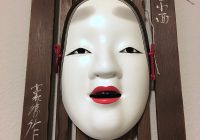Japanese literary expression: 〜のか〜 (~ no ka ~)
While learning Japanese has many perks, being able to read various works of literature is one of the top ones for me. Japanese is a language rich with words, expressions, and concepts that oftentimes don’t have direct parallels to English, and this makes being able to comprehend Japanese that much more interesting and rewarding. In… Read More »
TransLiterary Lab (#10): live analysis / translation of Japanese literature (“Akita Kaidou” by Kenji Miyazawa)
Don’t underestimate Japanese particles!
Thoughts on Mochitsuki 2020 (a Japanese festival in Portland)
Furigana (振り仮名): A guide to reading hints in Japanese.
TransLiterary Lab (#9): live analysis / translation of Japanese literature (“Akita Kaidou” by Kenji Miyazawa)
A brief introduction to Noh theater, one of the oldest forms of theater
Noh, written using the character 能 (meaning “ability”), is a style of classical Japanese theater that combines elements of drama, dance, and music. What is considered Noh theater today was established around 600 years ago in the 14th century, although some of its fundamental elements are over 1000 years old.
TransLiterary Lab (#8): live analysis / translation of Japanese literature (“Lemon” by Motojiro Kaiji)
Japanese word highlight: 良かれ (yokare)
When speaking with native speakers there is never a shortage of unfamiliar words that come up. The other day I heard the word 良かれ (yokare) in daily conversation, and while I was able to guess the basic gist of what it meant, I wanted to dedicate an article to this interesting word. First of all,… Read More »






